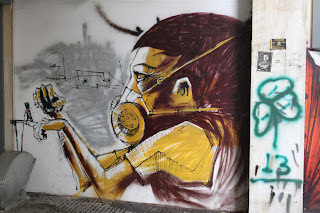Our Earth loses 2 rhinos a day due to acts of killing these endangered animals for money.
Rhinos are poached predominantly for exotic animal-part trade or medicinal mythical cures-medical ideas that have been scientifically proven to not treat or cure what they are advertised for.
The value of protecting rhinos needs to be taught in order to replace the value of trading their parts. Poaching is not the only problem, but it is the most important one to stop as educational projects and programmes can reverse the idea that the demand for them is necessary.
A man in South Africa, as seen in NHU Africa's Saving Rhino Phila has begun to farm as a way to influence a flood of rhinos horns into the marketplace, thus reducing their price and striving to maintain a healthy rhino population. But farming rhinos is not a solution as it doesn't eliminate the myths of these medical 'cures' and provides a 'safe' place for killing animals that will be may one day be called "previous wildlife, now cattle". Although there are other human-caused risks to rhinos, it is imperative to stop poaching these animals and supporting positive wildlife conservation education.
Human-centric ideas such as rhino horn uses for human consumption only decrease the longevity of our wildlife and will drive them into extinction. We have a responsibility to our planet to work towards becoming wildlife conservation activists in our own capacity.
Chris Mason from Natural History Unit Africa, produced and directed this Public Service Announcement, PSA, for World Rhino Day 2012: a Call for action to support Anti-poaching projects by WESSA, The Wildlife and Environment Society of South Africa. They filmed it on Kloof Street, Cape Town City Bowl, on a timelapse and reversed the Mak 1 One art piece into a disappearing artpiece.
It asks a question: Do you care if Rhino's disappear?
Let's hope this message and many other efforts allow us to care everyday to take responsibility to the stop of poaching.
Ideas to combat poaching through education projects are welcome to be shared here.
Other artists share concern about the killing of Rhinos. The Wooster Collective showcased words and pictures from another prolific Cape Town based graffiti aerosol artist, Faith47, painting in Shanghai, click here to see and read. She brought the spirit of African Rhinos into Asia.












